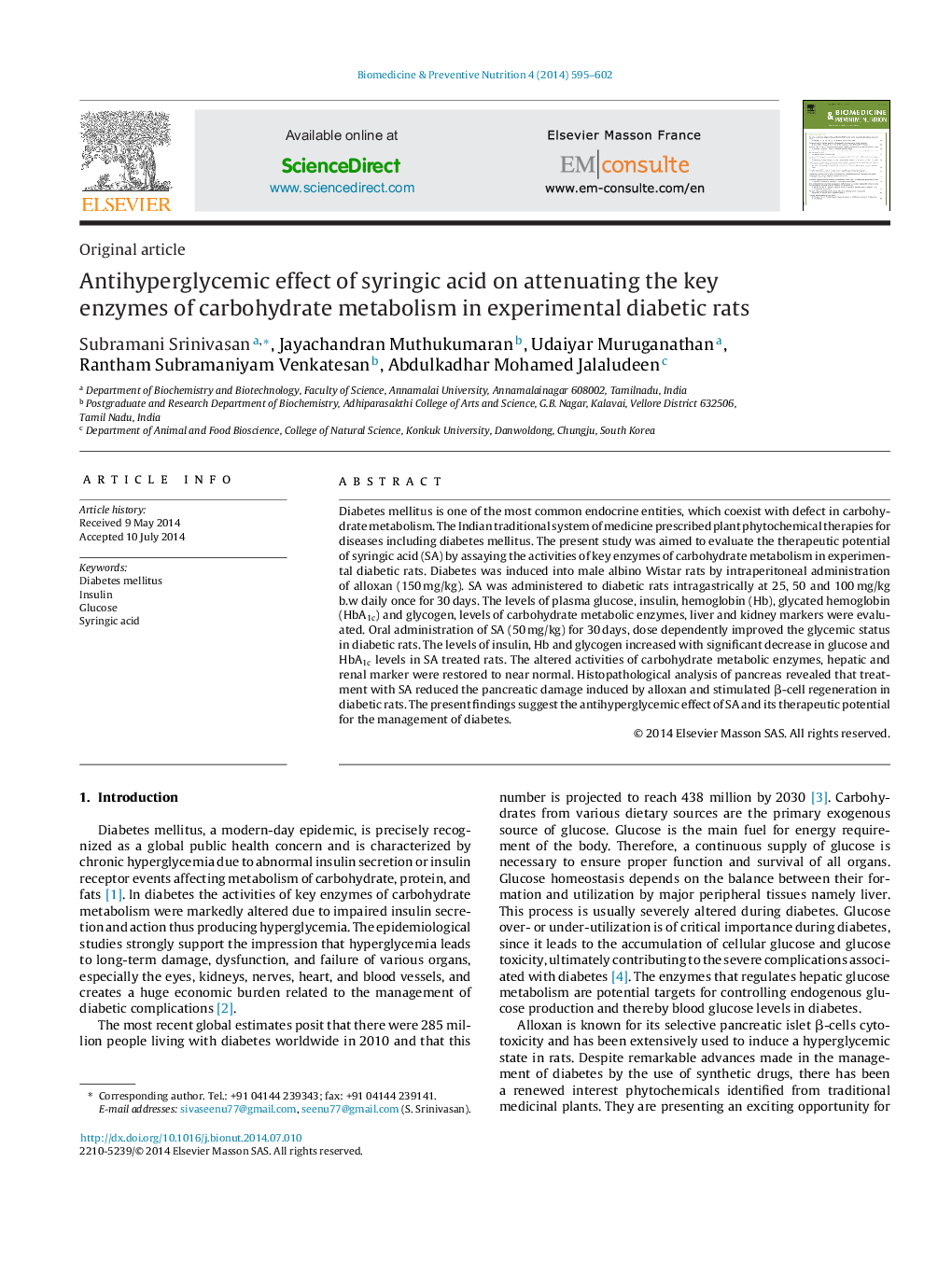| Article ID | Journal | Published Year | Pages | File Type |
|---|---|---|---|---|
| 2689081 | Biomedicine & Preventive Nutrition | 2014 | 8 Pages |
Diabetes mellitus is one of the most common endocrine entities, which coexist with defect in carbohydrate metabolism. The Indian traditional system of medicine prescribed plant phytochemical therapies for diseases including diabetes mellitus. The present study was aimed to evaluate the therapeutic potential of syringic acid (SA) by assaying the activities of key enzymes of carbohydrate metabolism in experimental diabetic rats. Diabetes was induced into male albino Wistar rats by intraperitoneal administration of alloxan (150 mg/kg). SA was administered to diabetic rats intragastrically at 25, 50 and 100 mg/kg b.w daily once for 30 days. The levels of plasma glucose, insulin, hemoglobin (Hb), glycated hemoglobin (HbA1c) and glycogen, levels of carbohydrate metabolic enzymes, liver and kidney markers were evaluated. Oral administration of SA (50 mg/kg) for 30 days, dose dependently improved the glycemic status in diabetic rats. The levels of insulin, Hb and glycogen increased with significant decrease in glucose and HbA1c levels in SA treated rats. The altered activities of carbohydrate metabolic enzymes, hepatic and renal marker were restored to near normal. Histopathological analysis of pancreas revealed that treatment with SA reduced the pancreatic damage induced by alloxan and stimulated β-cell regeneration in diabetic rats. The present findings suggest the antihyperglycemic effect of SA and its therapeutic potential for the management of diabetes.
